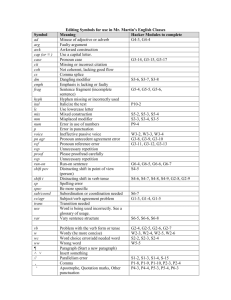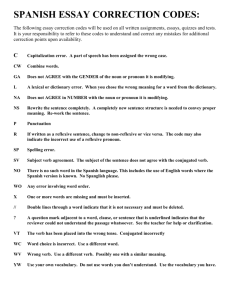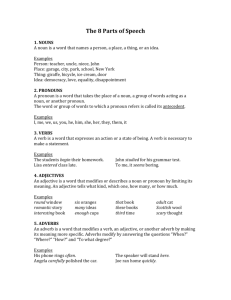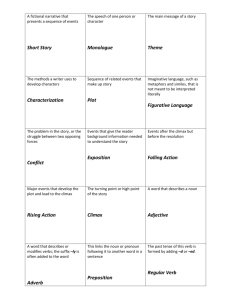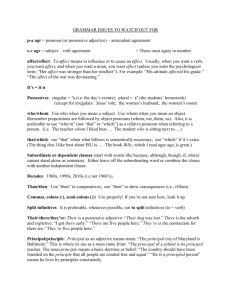Things to Avoid in Formal Writing
advertisement
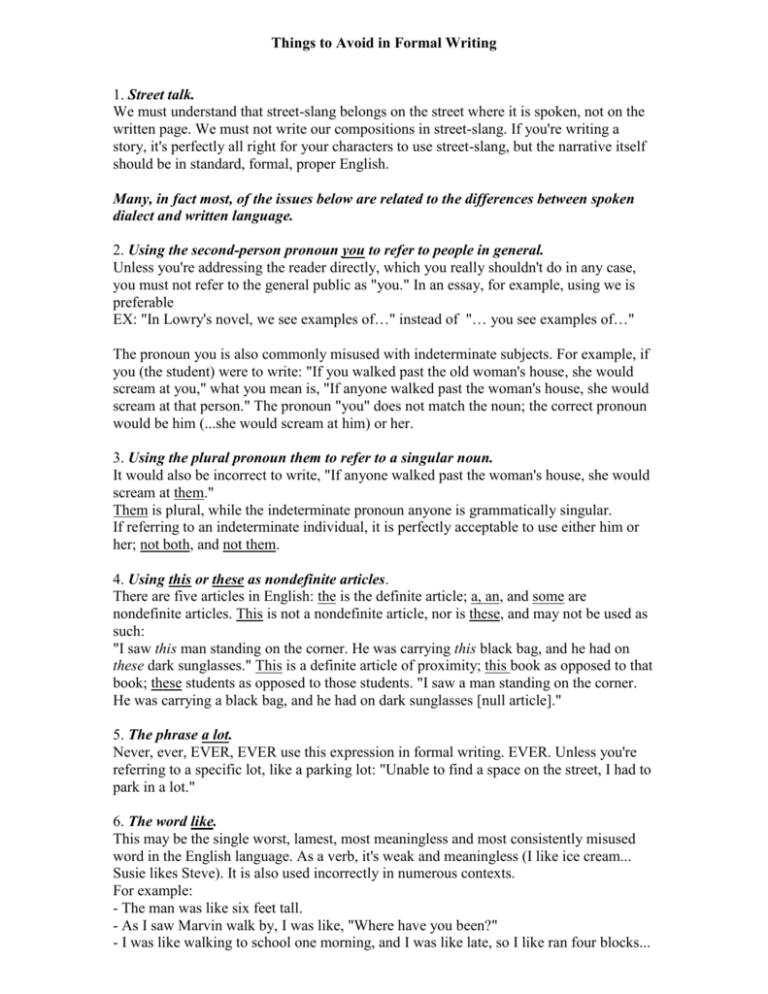
Things to Avoid in Formal Writing 1. Street talk. We must understand that street-slang belongs on the street where it is spoken, not on the written page. We must not write our compositions in street-slang. If you're writing a story, it's perfectly all right for your characters to use street-slang, but the narrative itself should be in standard, formal, proper English. Many, in fact most, of the issues below are related to the differences between spoken dialect and written language. 2. Using the second-person pronoun you to refer to people in general. Unless you're addressing the reader directly, which you really shouldn't do in any case, you must not refer to the general public as "you." In an essay, for example, using we is preferable EX: "In Lowry's novel, we see examples of…" instead of "… you see examples of…" The pronoun you is also commonly misused with indeterminate subjects. For example, if you (the student) were to write: "If you walked past the old woman's house, she would scream at you," what you mean is, "If anyone walked past the woman's house, she would scream at that person." The pronoun "you" does not match the noun; the correct pronoun would be him (...she would scream at him) or her. 3. Using the plural pronoun them to refer to a singular noun. It would also be incorrect to write, "If anyone walked past the woman's house, she would scream at them." Them is plural, while the indeterminate pronoun anyone is grammatically singular. If referring to an indeterminate individual, it is perfectly acceptable to use either him or her; not both, and not them. 4. Using this or these as nondefinite articles. There are five articles in English: the is the definite article; a, an, and some are nondefinite articles. This is not a nondefinite article, nor is these, and may not be used as such: "I saw this man standing on the corner. He was carrying this black bag, and he had on these dark sunglasses." This is a definite article of proximity; this book as opposed to that book; these students as opposed to those students. "I saw a man standing on the corner. He was carrying a black bag, and he had on dark sunglasses [null article]." 5. The phrase a lot. Never, ever, EVER, EVER use this expression in formal writing. EVER. Unless you're referring to a specific lot, like a parking lot: "Unable to find a space on the street, I had to park in a lot." 6. The word like. This may be the single worst, lamest, most meaningless and most consistently misused word in the English language. As a verb, it's weak and meaningless (I like ice cream... Susie likes Steve). It is also used incorrectly in numerous contexts. For example: - The man was like six feet tall. - As I saw Marvin walk by, I was like, "Where have you been?" - I was like walking to school one morning, and I was like late, so I like ran four blocks... The only way to use this word effectively is in creating a simile: "Her eyes were like the stars." or use it as a noun in place of etc.: "The carnival had rides, games, shows, and the like." 7. Mom and dad. These words are not common nouns; they are affectations, names by which we address our parents because we do not address them by name. Grammatically, in writing, they should not be used as common nouns; replace them with mother and father, respectively. 8. Homophones (sound-alikes). Just because two words sound the same, that doesn't mean they are the same. The words there, their and they're represent one of the most common errors of this type. There is an adverbial of place; their is a possessive pronoun; they're is a contraction of they are. These three words have absolutely nothing in common except the sound; they have completely different meanings and serve completely different functions. They are not the same!! Other examples of this maddening phenomenon include: to/too/two; when/went; no/know; are/our; here/hear; red/read; led/lead; right/write; through/threw; way/weigh; etc., etc., etc……… 9. Don't start with me! Too often, when presenting actions, student writers describe the character starting to do something, rather than doing it. "My mother started walking downstairs. She started saying, 'This living room is a mess,' then she started calling my father on the phone." Unless the starting of the action is important, in which case you should use began instead of started (for example, "I had just begun to write when I was interrupted by…), present the action as an action in itself: "My mother walked downstairs. She said, 'This living room is a mess,' and then she called my father on the phone." The only time to use started is as a transitive verb: "I started the car." "Bobby started a fight." 10. Other informal words. A guy is a wire or cable that keeps a tall structure from falling over; it is only informally or conversationally used to refer to a male adult or adolescent. A kid is a baby goat; it is only informally or conversationally used to refer to a human child, adolescent, or someone younger than the speaker. (For some reason, the word kid is used almost exclusively for males; people have no problem with girl but are afraid to use boy. Why is that?) Cool as an adjective refers to relatively low ambient temperature; as a verb, it means to lower the temperature; it is only informally or conversationally used to express a favorable opinion. Stuff is a verb meaning to fill a space to or beyond its capacity; it is only informally or conversationally used to refer to numerous indeterminate objects or possessions. 11. There is no such word as towards. The word you are looking for is toward. Towards is not a word in formal written English. Copyright 2009: J.Braiman


